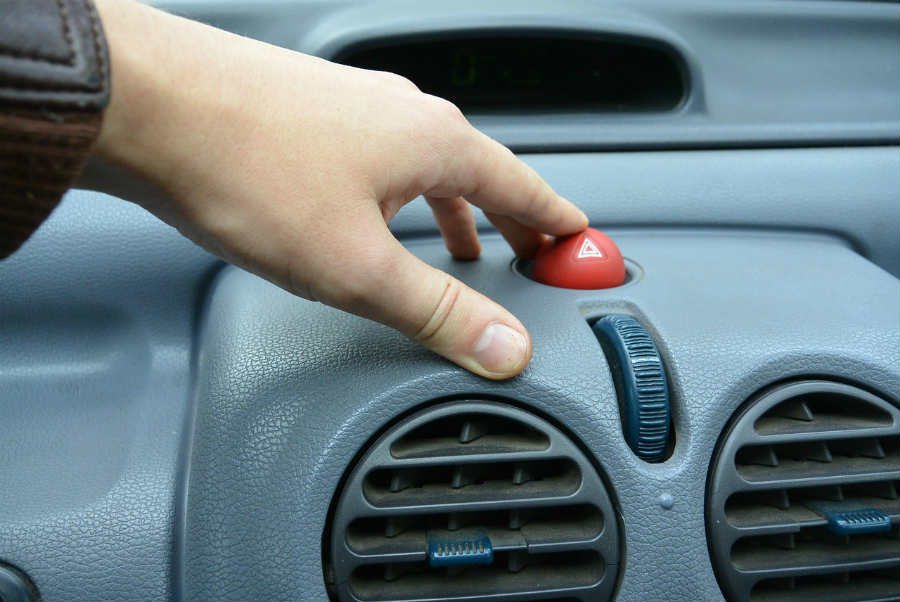Cars have always been a favorite target of thieves ever since the first recorded case of car theft in 1896. They’re high in value, can be disassembled for parts, and what’s more – they can also facilitate a thief’s escape.
According to researchers, car thievery today is less commonplace than it used to be. A large reason for this is that criminals are finding it more difficult to break into a car due to advancements or increased sophistication in car alarm technology.
Many people are pointing to this statistic and claiming that it shows that car alarms are no longer important, when in fact, it actually proves that the opposite is true – that we need to continue using these systems in order to decrease crimes even further.
What’s the Charge to Install a Car Alarm?
The car alarm system cost varies depending on the complexity of the system that you want, along with the type of vehicle that you’re using. As there are many different suppliers and providers in this niche, pricing can get competitive based on where you look.
Car alarm systems are sold by retailers like Best Buy, Walmart, Target, and Sears – but these retailers do not typically include installation in the purchase.
You can buy an alarm system for as low as $12.99 at online stores which includes two remote key fobs, a siren, and wiring harness. But in order to have the system professionally installed, you’ll need to look for a local retailer that can get the job done.
Installing a car alarm by yourself is an option, but be aware that it may void the warranty on the product that you buy. Refer to the end of this article for a DIY guide.
So, what is the car alarm installation price? Based on information gathered from various dealers and mirroring the factors listed above, the total is estimated to range from $80 to $300. These prices include the alarm system components themselves, along with the service fee to have them installed.
System components typically consist of one or more remote controllers for arming/disarming the system, an alarm siren, and sensors. Here are a few samples:
| Provider | Price | What’s Included |
| Best Buy (Geek Squad) | $190 | Initial vehicle inspection, professional installation, car alarm system |
| Amazon (Installation Only) | $80 | Installation of customer-supplied alarm unit, removal of dash and wiring of alarm, inspection of the car door to ensure operational alarm, operational instruction, and overview |
| Compustar | $160 – $250 | Professional installation, remote control(s), sensors, siren, warranty |
Prices can increase if additional upgrades are added on top of the car alarm installation. Examples of such upgrades include:
- Vehicle Starter Disabler: $50 – $100
- 2-Way Alerts: $200 – $350
- Smartphone Connectivity: $150 – $200
A few of the most well-known manufacturers of car alarm systems are Viper, Compustar, Avital, and Prestige. Some retailers offer free installation along with the purchase of the alarm unit, such as Car Stereo City in San Diego, California.
Viper is a leader in vehicle security and remote starters and offers both 1-way and 2-way advanced systems that use GPS and cellular tech to allow true remote control of the system. Viper SmartStart GPS requires a GPS service plan which costs $70 – $100.
How Does a Car Alarm Work?
A car alarm serves a very simple purpose, really – to prevent unauthorized entry to your vehicle as well as deter would-be thieves. The components that make up a car alarm typically consist of a computer, a receiver, a loudspeaker, and sensors.
A car may have between one and ten different sensors, depending on the year and model. Basically, the sensors monitor for any illegal activity and if they detect any, send the data to the alarm computer which then activates the siren (loudspeaker).
Some systems are also sophisticated enough to turn off the alarm when certain conditions are met.
A key fob with a built-in radio receiver is available for some cars and allows a user to wirelessly control the alarm system to arm or disarm it.
That’s pretty much all there is to it, but there are further details that make for some pretty unique detection methods. There are several different types of car alarm sensors being used on modern vehicles:
- Door Sensors
- Shock/Impact Sensors
- Microphone Sensors
- Tilt Sensors
- Proximity Sensors
Door sensors are the most common sensors and simply activate when a thief opens a door while it’s locked using a pick or skeleton key. Shock and impact sensors are activated if the thief decides to break a window to gain entry. These sensors can sometimes trigger accidentally.
Some car thieves are pretty smart, though, and use special tools to avoid triggering the shock alarm when breaking a window.
To counter this, some automobile manufacturers have installed microphone alarms that monitor loud, sudden noises in and around the car. Because of the way they work, these sensors can also give off false alarms occasionally.
Tilt sensors stop thieves from towing the car off altogether. By monitoring the angle of the car, the computer can tell if the vehicle is inclined and will trigger the alarm when it’s active.
These sensors use devices filled with mercury which flow to one side or another in such an event and send electrical signals to the computer and sound off the loudspeaker.
Another type of sensor – the proximity sensor, scans an area around the car for movement. These sensors are designed to only capture movement very close to the vehicle and at a certain speed.
They’re usually installed on high-end vehicles and are also prone to accidental triggering from time to time.
Modern car alarm systems use an auxiliary battery so that they can still operate even if the car’s main battery dies. This is useful because car thieves often like to cut power to the vehicle first by snipping the battery cables under the hood.
A sudden loss of power to the battery like this would activate the auxiliary battery power and send a signal to the computer which will trigger the alarm.

Common Problems with Car Alarms
Car alarms can have some problems that you should be aware of. A lot of the time, the issue is due to old age or bad internal wiring.
Know the status of your alarm system to make sure that it’s always in top notch condition and ready to deter thieves.
The remote entry system on a car can become faulty when the battery in the remote loses power. If you’re noticing issues when activating/deactivating the alarm using your remote, try replacing the battery and see if it fixes the problem.
Another annoying issue is where the car alarm randomly goes off by itself; often in the middle of the night. The alarm system is faulty – you’ll need to disable it in the meantime until you can have the car serviced. Bring it in as soon as possible, as your car is vulnerable to thieves during this time.
If you’ve purchased a used car, the alarm’s wiring system may have been installed DIY-style and might have been done incorrectly. If you suspect that this is the case, have the car inspected immediately by an ASE-certified automotive technician.
Anything Else You Need to Know?
When shopping for car alarm installation, make sure that the provider posts all relevant policies such as labor rates, warranties, guarantees, etc., to help you make a better decision. Check if it specializes in certain types of vehicles or if all models are covered.
It’s recommended to check the rating on the Better Business Bureau for any complaints. Other customers’ insights can be extremely useful.
If your goal is to simply invest in basic protection, a car door sensor should be enough. But if you need more advanced protection in a high-crime area, then go for an alarm system that has more detection methods.

